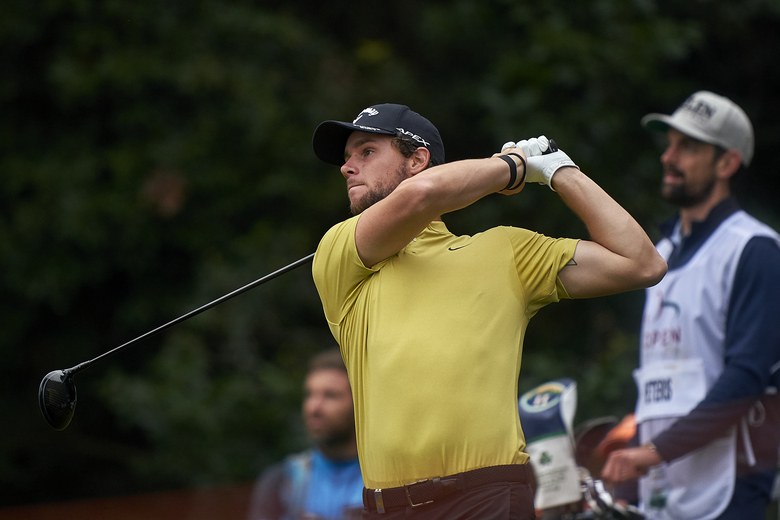Quality Sport Images/Getty Images
By Brian Wacker
Earlier this year, the European Tour announced a plan to combat the slow play problems that have plagued golf for years. In short, one-shot penalties will be doled out more quickly, along with increased fines, beginning next season.
On Sunday, Thomas Pieters made his own statement.
Pieters was first off as a single in the final round of Italian Open on the European Tour. Granted, that means he wasn’t in contention and had a lot less at stake than players at the top of the leader board, but he still acquitted himself alright. The 27-year-old Belgian shot even-par 71 and did so in 1 hour, 59 minutes—the same score he shot the first two rounds of the tournament.
A nice side benefit? He burned more than 1,300 calories doing so. It’s not as if he was running from one shot to the next, either. According to a fitness app he was using, Pieters’ heart rate was actually lower than normal for a golf “workout.”
Afterward, Pieters tweeted, “Make golf great again,” with the graphic that showed his calories burned, average heart rate, max heart rate and time spent.
Pieters is the latest player to prove that playing slow doesn’t necessarily mean playing better.
In 2016, Kevin Na played the final of the Tour Championship, also as a single, in the same amount of time. He shot the same score, too, with an even-par 70 at East Lake.
“It wasn’t like I was quick-hitting it,” Na said at the time. “I was running in between shots, but when it was my turn to hit, I read every putt from both sides, and I took my time. I was trying to also shoot a good score because it doesn’t matter how fast you play, if you put up like a 78 or an 80, it really doesn’t do any good. And I really wanted to break par.”
A year later, Wesley Bryan was even better, shooting a 69 in the final round of the BMW Championship, where he raced around Conway Farms in a scorching hour and 28 minutes.
The point: Playing slow doesn’t necessarily add up to shooting a lower score.









